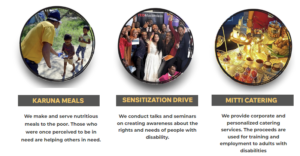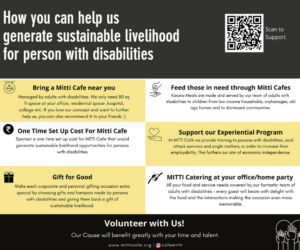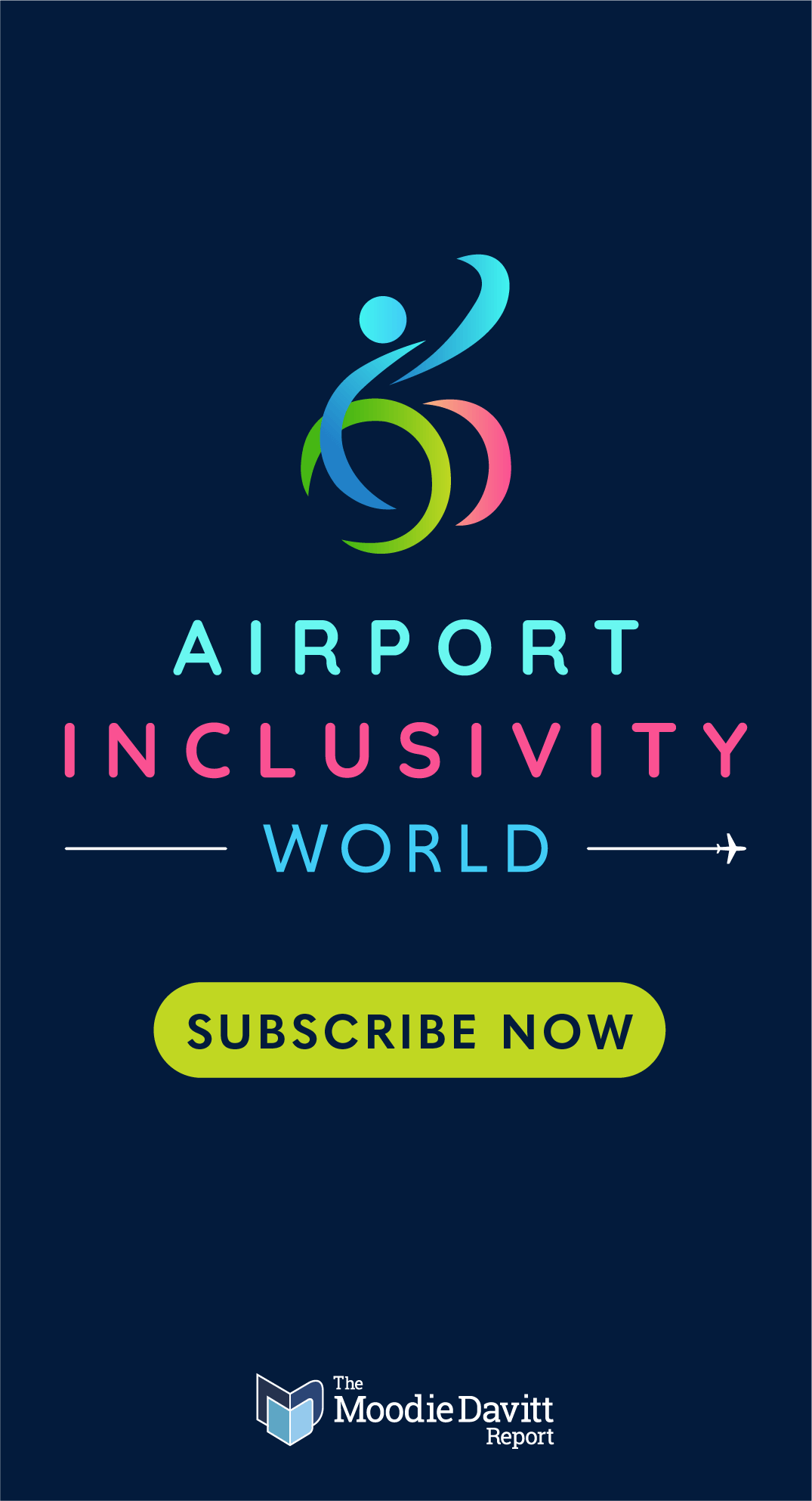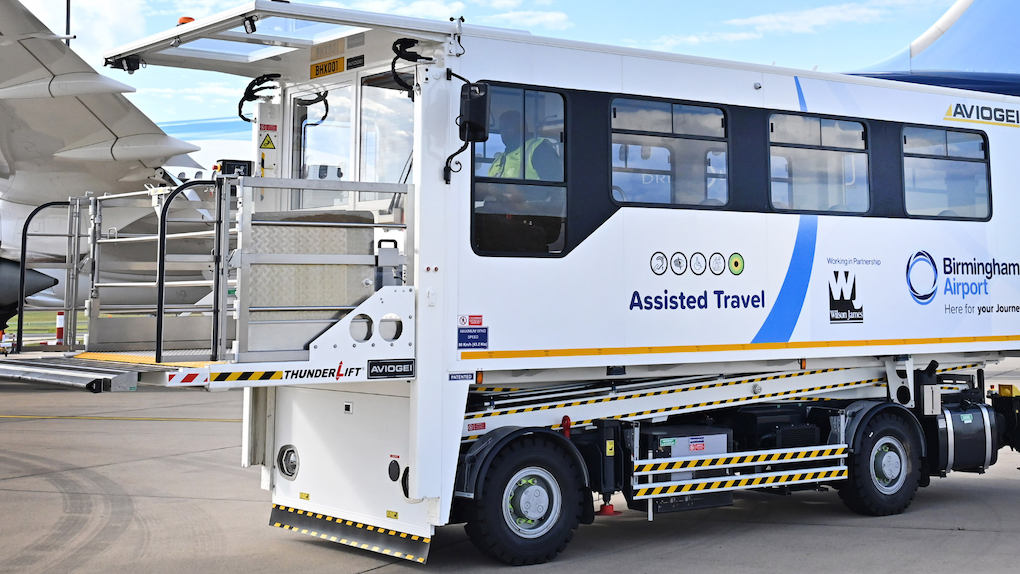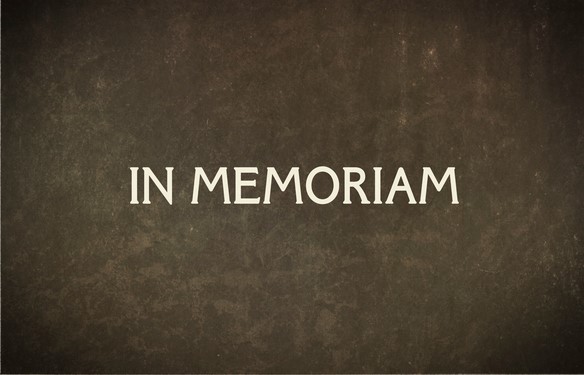“This award recognises a remarkable concept. It relates to a chain of cafés that are completely managed by adults with physical, intellectual and psychiatric challenges, a chain now present in more than 40 locations across a nation, including several airports.
“Mitti Café in India is a social enterprise dedicated to empowering individuals with disabilities by providing them with opportunities for economic independence and dignity.
“Founder and CEO Alina Alam started Mitti Café at just 23 with a powerful dream: to show the world the magic of abilities, not the supposed limitations of so-called disability. I saw her speak during a workshop a few weeks ago in Bengaluru and like everyone in the room was deeply moved by this slip of a woman’s guts, courage, compassion and unwavering determination to make a difference.

“The work done by Mitti Café extends beyond serving food; it creates a platform for skill development, employment and social integration.
“But such ventures need support, believers, champions. And in the far-sighted management of Bangalore International Airport Limited, Alina and Mitti Café found exactly that.
“For their inspirational and pioneering collaboration in opening the first airport Mitti Café at Kempegowda International Airport Bengaluru – one that subsequently led to other airport openings – and thus enriching the lives not only of those who work there but those who are served there, we jointly make this award to Mitti Café Founder & CEO Alina Alam and Bangalore International Airport Limited.”
– The Moodie Davitt Report Founder & Chairman Martin Moodie, speaking at the 2024 Airport Food & Beverage (FAB) + Hospitality Awards in Ontario, California last month, in presenting the 2024 FAB Humanitarian Award to Mitti Café Founder and CEO Alina Alam and Bangalore International Airport Limited for their opening of the first airport Mitti Café.
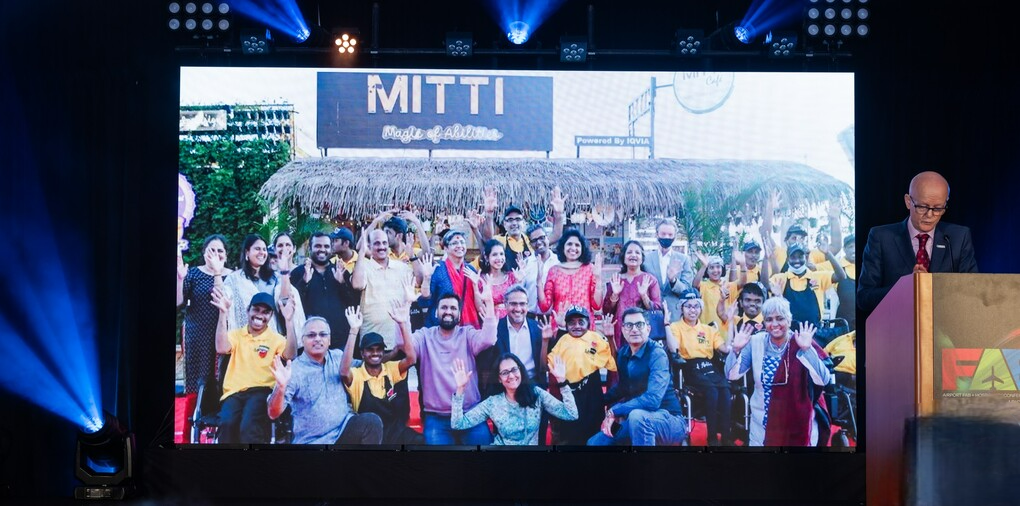

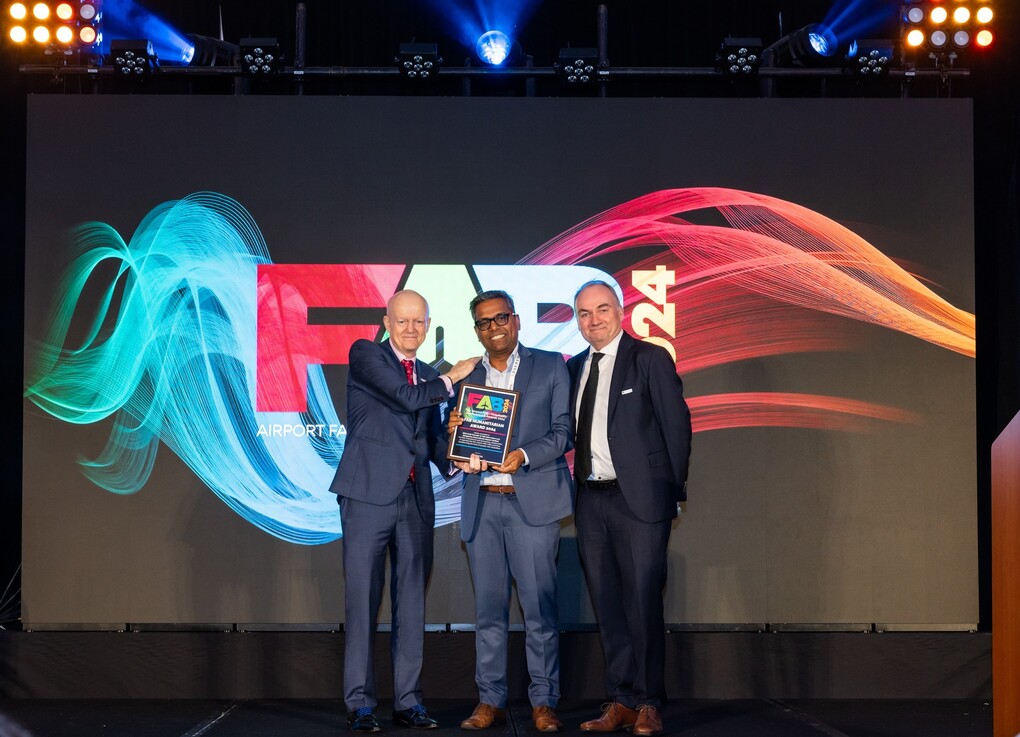
Prologue: On 7 June Bangalore International Airport Limited (BIAL) hosted ElevateBLR, a workshop dedicated to taking Kempegowda International Airport Bengaluru to a new level. The Moodie Davitt Report Founder & Chairman Martin Moodie was honoured to help moderate the event. Mitti Café Founder and CEO Alina Alam was among the speakers, delivering an astonishingly powerful, passionate and poignant address. Here is an edited version.
Every time I come to a BIAL event, it is quite emotional. The reason I feel this will become very obvious in the next few minutes.
Let me take you back a few years. I was a 22-year-old college student, waiting for placement, hoping to finally land a job. But God had other plans. I watched a documentary [about Nero, the fifth Emperor of Rome Roman, notorious for his cruelty and debauchery].

Nero was immensely wealthy, winning one war after another. One day, he won the biggest battle of his life. So he decided to throw a party, inviting the who’s who of the town – kings and queens, princes and princesses from across seven kingdoms. But as evening fell, Nero said they needed some lights to make the party lively. So he decided to burn rubbish to generate light. He burned prisoners of war and poor people he considered nothing more than waste.
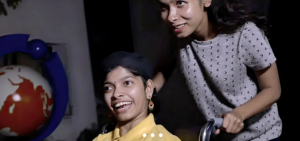
At 22, sitting in my classroom, I realised something very simple. The problem wasn’t Nero. You could equate Nero with atrocities, injustice, discrimination – all those not-so-nice things that exist in this world and will always exist.
The real problem was Nero’s guests – how thousands of them could sing, dance and drink while fellow human beings burned and died. At that moment, I realised I was one of Nero’s guests. If you feel something about anything, if your heart tells you something and you are not willing to take action, whatever your reason may be, then you have taken a side – the side of the oppressor.
I decided I couldn’t continue being one of Nero’s guests. I did not sit for college placements but instead started a journey to find myself. I began volunteering with organisations that work in the disability inclusion space because I was raised by my stellar grandmother, who had a disability. Yet all I could see in her were abilities.
I’m the mother of a one-year-old baby. Generally when we conceive we say we want a healthy baby. What does a healthy baby mean? A baby without a disability. The problem isn’t that there are 70 million people with disabilities in India and over a billion people with disabilities worldwide. The problem is not that one out of six people have a disability in this world.
The problem is the larger statistic. And you know what that is? It is a disability in our perceptions that stops us from seeing the magic in their abilities. I wanted to challenge and change that. I needed a common denominator that could achieve two simple things: generate sustainable livelihoods, meaning money should consistently enter the accounts of our team members with disabilities, and create awareness about inclusion with every meal or beverage we served.
And so, Mitti Café was born. I started Mitti with zero start-up capital and faced multiple rejections. I didn’t even know what capex and opex were when I began. But when you have nothing to lose, at your lowest point, that’s when you’re strongest. So I went from door to door, shop to shop, house to house, asking people to join the movement of inclusion.
I thought to myself, they’re not going to give me money, so what else can I ask of them? Today 90% of our equipment — from second-hand spoons, ovens, fridges, to tissue papers and flasks — has come from absolute strangers. That is the community.
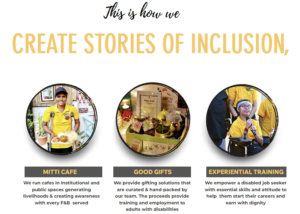
Our first café was in a dilapidated tin shed full of rats. The student community helped us clean it. I remember the first day a girl came in for an interview. She was crawling because her family couldn’t afford a wheelchair. We would give her this clicker, her hands would shake and she would drop it.
Today, the same girl sits in her wheelchair and manages other people with disabilities. She is the manager of our first café. Her name is Kirti. As I speak to you today, we have hundreds of Kirtis across the 46 – soon to be 50 – Mitti Cafés run entirely by adults with physical, intellectual and psychiatric disabilities.
Together, our team members with disabilities have served over 11 million meals and beverages. For us, every one of those 11 million meals and beverages is an opportunity to create awareness about inclusion, not by Alina Alam nor Mitti Café, but by our changemakers with disabilities who are at the forefront.
We all know this gentleman in the middle of the photo [below] – Narayana Murthy, one of the founders of Infosys. A lot of us really admire him. But the hero of the picture is someone else. His name is Bhairappa [fifth from right]. He represents the hundreds and millions of stories of people with disabilities that often go untold and unnoticed. Bhairappa is about three feet in height and has dwarfism, a motor disability and a mild intellectual disability.
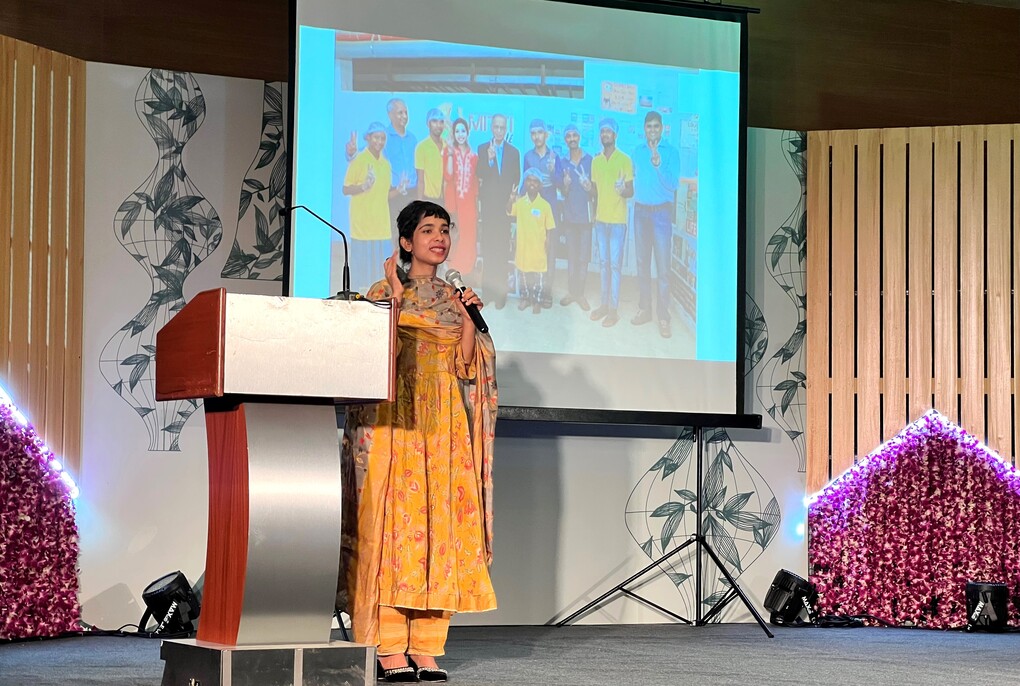
{Click on the YouTube icon to listen to Infosys Co-Founder Narayana Murthy express his admiration for Alina Alam and her Mitti Café concept}
When Bhairappa came in, he had been rejected from over 80 jobs. Coincidentally, the day he came in with a torn t-shirt and barefoot was the day Mr Murthy visited. We quickly gave Bhairappa a t-shirt to wear. From being barefoot and rejected at over 80 jobs, he now works at Bangalore International Airport.
He’s become the team lead. Now it’s time for the world to see their abilities, not their disabilities. But that’s a lesser challenge, because eventually all of you will see it. But do you know what the larger challenge is? The larger challenge is showing them the mirror to their abilities after years of rejection, being told they’re not good enough, and years of bullying.
Bhairappa was bullied. I remember he said in one of our conversations, “I never had friends in my village. They considered me a child of ill omen, so they wouldn’t let their children play with me.”
He was also told something even more painful: that because of his disability, he would never find anyone to love him. Love is everything. Everyone wants love, whether they have money in their pockets or not. But don’t be too sad, because it happened for him.
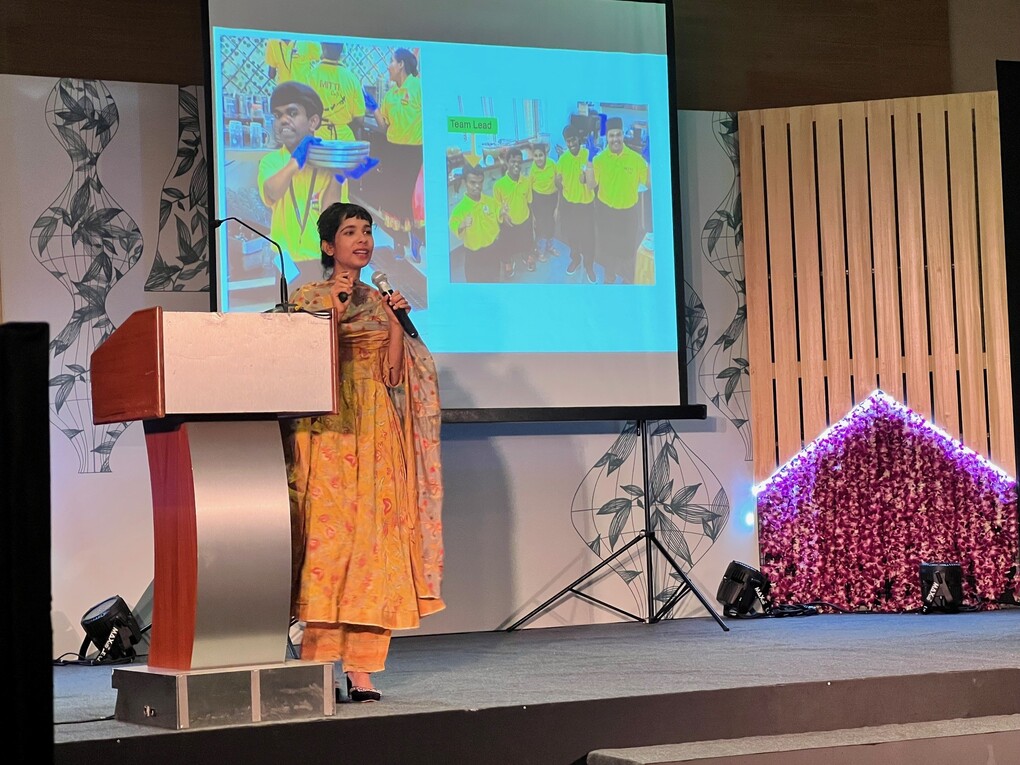
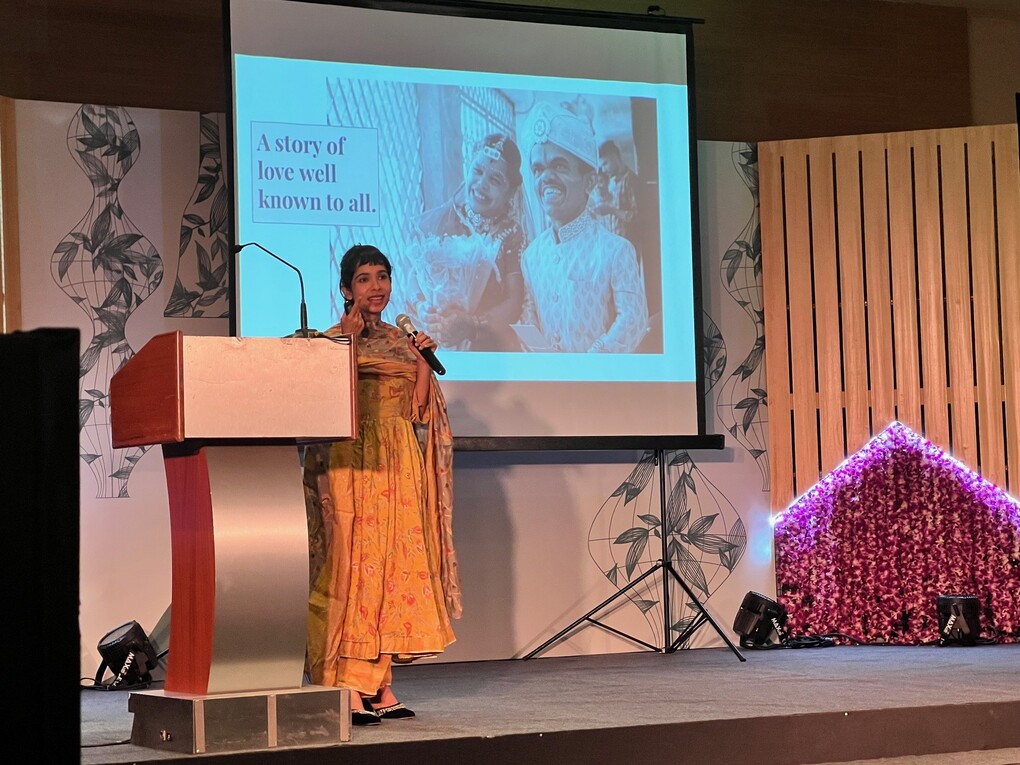
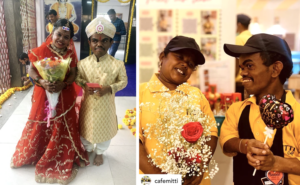
Additionally, we have trained over 5,000 people with disabilities across the country. For us, training is experiential because many of our candidates may not know how to read or write due to lack of access to school and inaccessible infrastructure.
For example, understanding simple hygiene practices like touching money but not food doesn’t require theory – practical experience is good enough. Our trainees often end up becoming trainers themselves.
When COVID-19 happened, all our cafés shut down. At that time, we had 13. Now we have three times as many, but back then we had to start from scratch again. This will happen to many of you; you reach a high point, then fall back to the ground. During our struggle for survival, one of our team members with cerebral palsy and autism, Hemant, stepped up.
Generally, when we talk about autism or other intellectual disabilities, people say they are crazy, nameless, that they don’t know what they are saying or doing. Our experience has been so different. People with intellectual disabilities may be slow but they are perfectionists in whatever they do. Their strength lies in doing everything from the heart. They think from their heart and act from their heart.
At the peak of COVID-19, when Mitti Café was struggling to survive and all our corporate campaigns had shut down, Hemant came to us and said, “Didi, there are people who are hungry, and we know how to cook. If we start cooking, nobody will stay hungry.” And he burst into laughter. That was his vision.
We started with a few hundred meals, and as I speak to you today, our team members have served over 6 million meals to the economically vulnerable. All of this has been done by persons with disabilities, thereby changing the narrative. With the right kind of support, they can not only support themselves but also the nation in need.
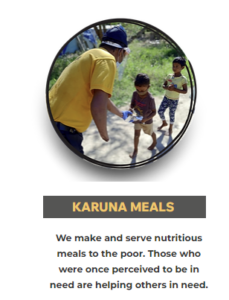 Today, we continue the Karuna Meals initiative (pictured right) – or the Compassion Meals – for those who cannot afford food in the remotest areas, including the Sundarbans, and for communities such as Bhairappa’s, where children were once not allowed to play with people like him.
Today, we continue the Karuna Meals initiative (pictured right) – or the Compassion Meals – for those who cannot afford food in the remotest areas, including the Sundarbans, and for communities such as Bhairappa’s, where children were once not allowed to play with people like him.
In these communities, our team members with disabilities cook, pack and serve meals, changing perceptions about disabilities and what constitutes inclusion.
We also have gifting as a vertical. During COVID, when Mitti Café shut down, we involved all our team members with disabilities in different initiatives, starting Mitti Good Gifts.
When Kotappa came in, we realised his parents had left him at our centre and we couldn’t find them. We discovered he has a knack for art [used on a beautiful Mitti Café gift kettle -Ed]. Every gift is a way to give back livelihoods. For all your gifting needs, you can reach out to Mitti Café and these amazing people will create something special for you.
Then something happened that, yet again, redefined what Mitti Café could be. Our cafés had shut down, and one of our mentors, Farzaan, and Suresh from SVG Social Venture Partners stepped in to help. They let us open a café at Sight Care Hospital.
This amazing gentleman, Mr Hari Marar [BIAL CEO], walked into the small café there and the next day we received a call from Kenneth’s [BIAL Chief Commercial Officer Kenneth Guldbjerg] office saying, “Why not have a Mitti Café at Bangalore International Airport?” We couldn’t even imagine it. After all, we had started so small.
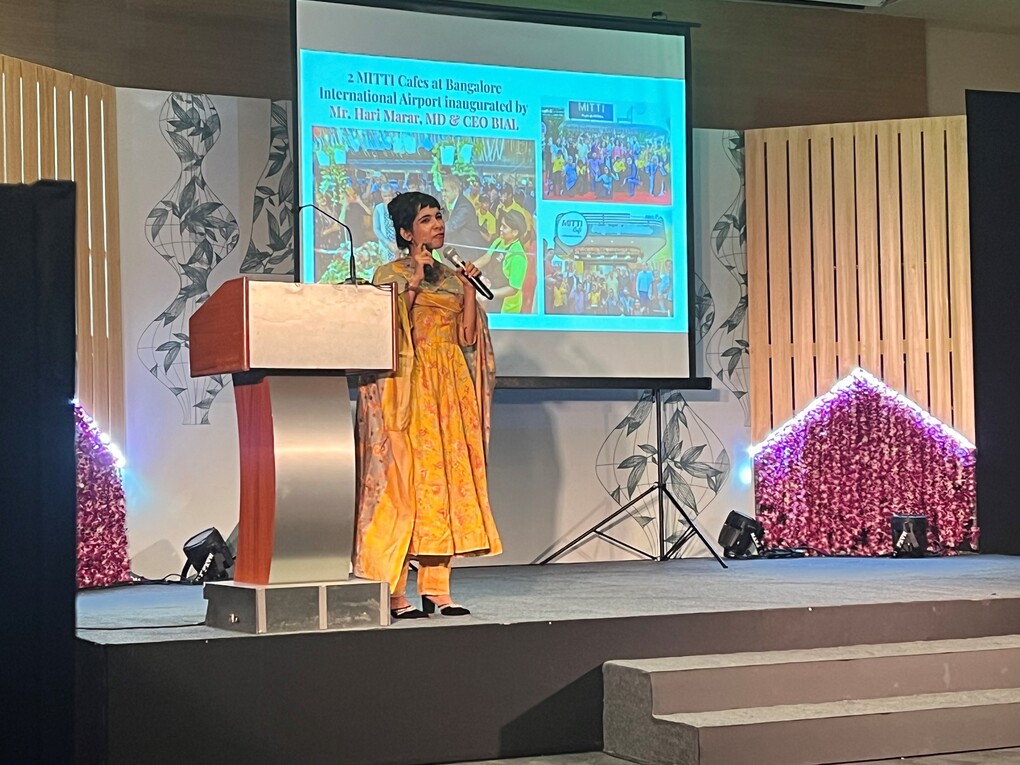
But yes, fortune led us there. We started two cafés at Bangalore International Airport, supported by the entire BIAL community. After this, something incredible happened. We were spotted by someone from the Adani Group, who noticed our cafés at BIAL and suggested we start something at Mumbai International Airport.
From starting in a dilapidated tin shed full of rats to being noticed by Hari, followed up by Kenneth, and guided by Pravat [BIAL Vice President – Commercial Pravat Paikray], we have come a long way.
When we first came to Bangalore International Airport, we didn’t know where we would get the money to set it up. But God has his ways. When he sends people to this world to do his work, miracles happen. BIAL has done that for so many of our candidates with disabilities. Kenneth, we are incredibly grateful for the amazing leader that you are.

We have so many vendors who supported us. We had the Federal Chancellor of Germany visit us. Honestly, when we received the news, we didn’t know what a Federal Chancellor was. We generally know national leaders as Prime Ministers or Presidents. After googling him, we realised he is equivalent to a Prime Minister.
We also started a beautiful food truck to make Mitti Café mobile, allowing us to serve seven places in seven days. This happened because of another amazing Indian institution. A senior advocate spotted our café at Bangalore International Airport and wondered why we weren’t at the Supreme Court of India. So Mitti Café opened at the Supreme Court and was inaugurated by the Chief Justice, sending a message to the entire country about the importance of diversity, equity and inclusion.
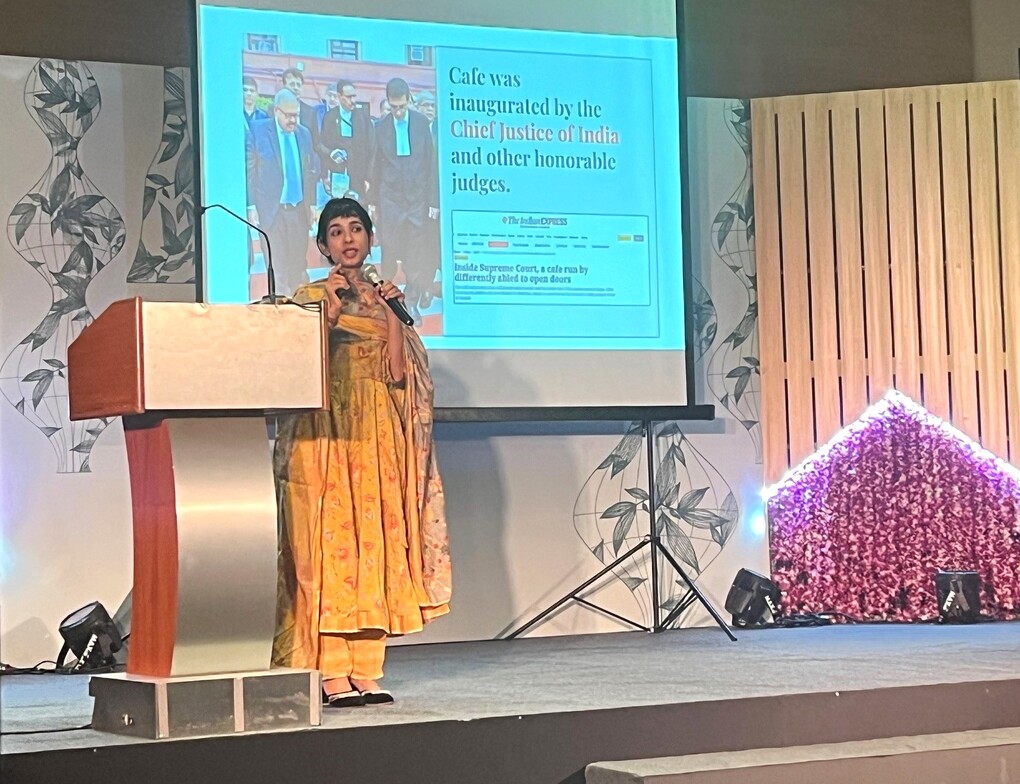
We had another visitor – the President of our country – come to Mitti Café. Then Lucknow Airport also spotted us at Bangalore International Airport and invited us to open. The Adani Group reached out and the Defence Minister of India inaugurated the café for us. And now, Mitti Café has started up at the Rashtrapati Bhavan (official residence of the President of India).
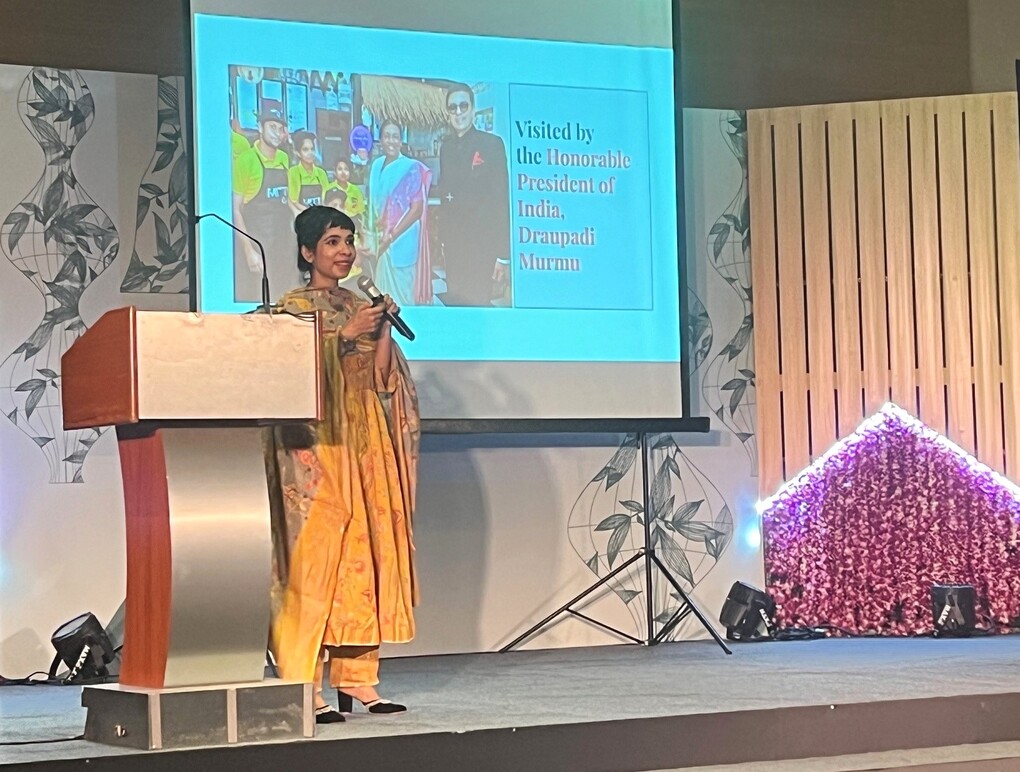
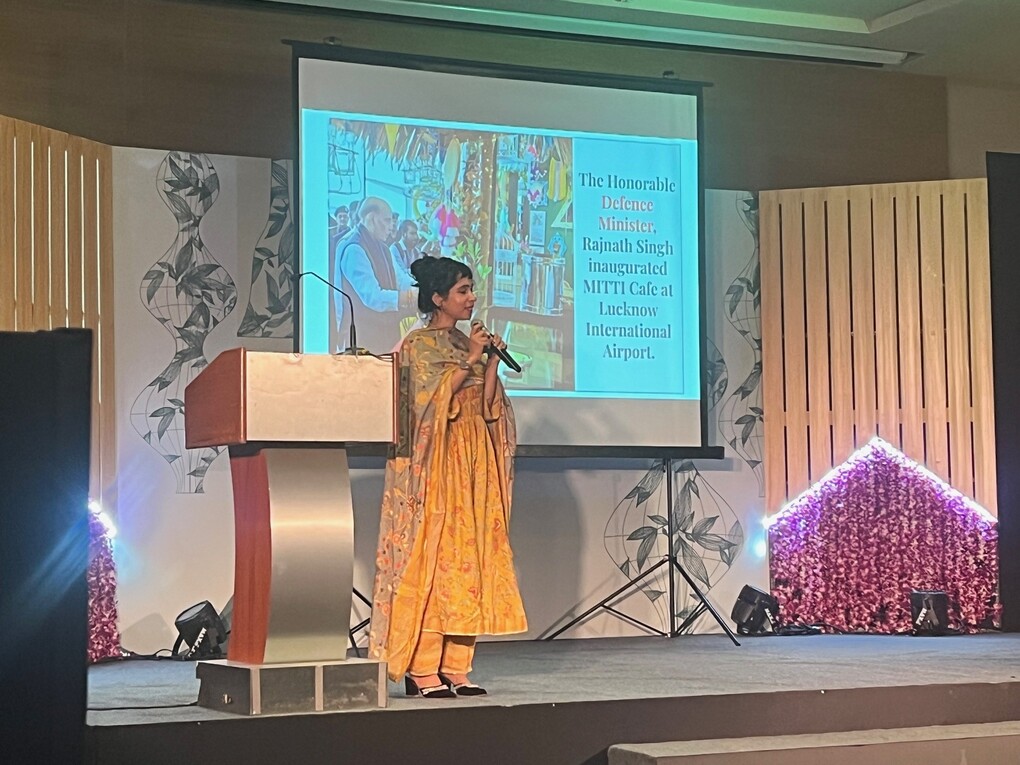
These are some amazing snippets from our moments at Bangalore International Airport. Many of our donors come in to celebrate with us, including singing some amazing Christmas carols. BIAL is like a family, which is why I get emotional every time I come here.
We had the CRPF [Central Reserve Police Force, India’s internal security and peacekeeping unit] visit. Many incredible people from the community come in to support us. We even have many love stories at Bangalore International Airport – seven love stories that have turned into marriages… and counting. Thank you for playing cupid for us.
Now, lastly, this is something I want to share with you. When I started my journey as an entrepreneur, I was often asked questions that many women face. Questions like, “Boss lady, you’re just out of college and everything’s hunky dory now, but what happens when you get married?” At the time, I didn’t have anyone in my life; I didn’t have Sadiq. And then they would ask, “What about when you have a baby?”
I lost out on a lot of opportunities because I didn’t have an answer then. But today, I do have an answer. I am married now, and I have my little one-year-old, Orhan. I have an amazing partner. This is important for all of you, both women and men: the ecosystem is vital for enabling women to achieve their full potential. We are half the population, and yet the work women do at home – 24/7 – is often undervalued and goes unrecognised in the GDP of any country.
Since Orhan was born, I’ve continued to travel extensively. When he was in my belly, I travelled to nine countries across three continents. Since his birth, I take him everywhere. The community around me has been magnificent in helping raise this child. I’ve taken almost 160 flights since he was born. After this, we are off to Calcutta, then Delhi and then the UK — all within the next 15 days. This is possible because of the kindness and courage I’ve witnessed in this community.
If you’re a woman with potential… you know the statistics show that many women leave the workforce after having a child. But this can change, and it can change with your support. The magic that women can bring to the world also depends on the magic you contribute to the ecosystem.
Lastly, when I started, I had a question: We talk about hunger, poverty, homelessness and violence among millions. So what difference does it make if one person tries to do anything or make a change?

A simple story changed my perspective forever. It goes something like this: during a high tide, there were millions of starfish on the seashore. A young girl was picking up one starfish at a time and throwing them back into the water.
A wise man came up and asked her, “What are you doing?” She continued her task. He asked again, more assertively, “Young girl, what are you doing? What difference does it make? The shore is full of millions of starfish, and here you are picking up one and throwing it into the water. Is this some kind of game?”
What the girl said next changed my perception about making a difference.
She picked up another starfish, threw it into the water, and told the wise man, “It made a difference to that one.”
For me, my first starfish was Kirti. Every day, I am driven by the hunger and pursuit to reach out to the billion starfish across the world for whom economic independence and dignity are not yet a reality.
To all of you sitting in this room, I promise you that you have the potential to bring about that change. We often glorify social work, saying, “Wow, we are doing amazing work.” But let’s change social work to social duty. We are in this comfortable, air-conditioned room, with a projector and an amazing ecosystem, while millions of young girls out there will never go to school because of their gender.

There are millions of infants who will never see daylight because of their gender. There are millions out there who have been kicked out of their houses by their own children, after taking care of them all their lives. There are millions like our Nandish, Swami and Kirti who are deprived of opportunities only because of their disability. And here we are, at a point of privilege. It is our duty to give back. It’s a debt we owe to society, to our community, to our family, friends, and God for everything they’ve done for us.
We may never be able to repay it fully in our lifetime, but it is about trying. As one of my favourite poems goes goes – “Mere seene mein nahin toh tere seene mein sahi. Ho kahin bhi aag lekin aag jalni chahiye.” (If not in my heart, then in your heart. Fire may burn anywhere but it must burn.)
But irrespective of whether we live or die, that intiution has to continue in someone’s heart. Do that one bit for that one Kirti. Inspire just one more person to join the movement to do good and the world will change into what it deserves to be.
The magic to make this happen lies within each one of you. Use it, because compassion and courage are two weapons that can eradicate any problem our world faces today. The only true form of development is inclusive development. ✈
Footnote: Mitti Café’s impact can be seen across multiple high-profile locations, including major airports in India. The cafés at Kempegowda International Airport Bengaluru; Chhatrapati Shivaji Maharaj International Airport (Mumbai); Chaudhary Charan Singh International Airport (Lucknow), and recently at the Rashtrapati Bhavan (Presidential Palace) are prime examples of how Mitti Café is making a difference.
Alina Alam is a four-time TEDx speaker and has been featured in the Forbes 30 Under 30 Asia list. Her impressive list of awards includes the Commonwealth Youth Award, the NITI Aayog Women Transforming India Award, the Helen Keller Award, the United Nations Intercultural Innovation Award, the Times of India She Unlimited Award, and the Rotary Exemplar Award, among many others.
Note: The Moodie Davitt Report is the leading international information source on India’s travel retail and airport non-aeronautical revenue sectors. All stories are archived permanently in our India newsroom (accessed via the regional section on our home page drop-down menu).



